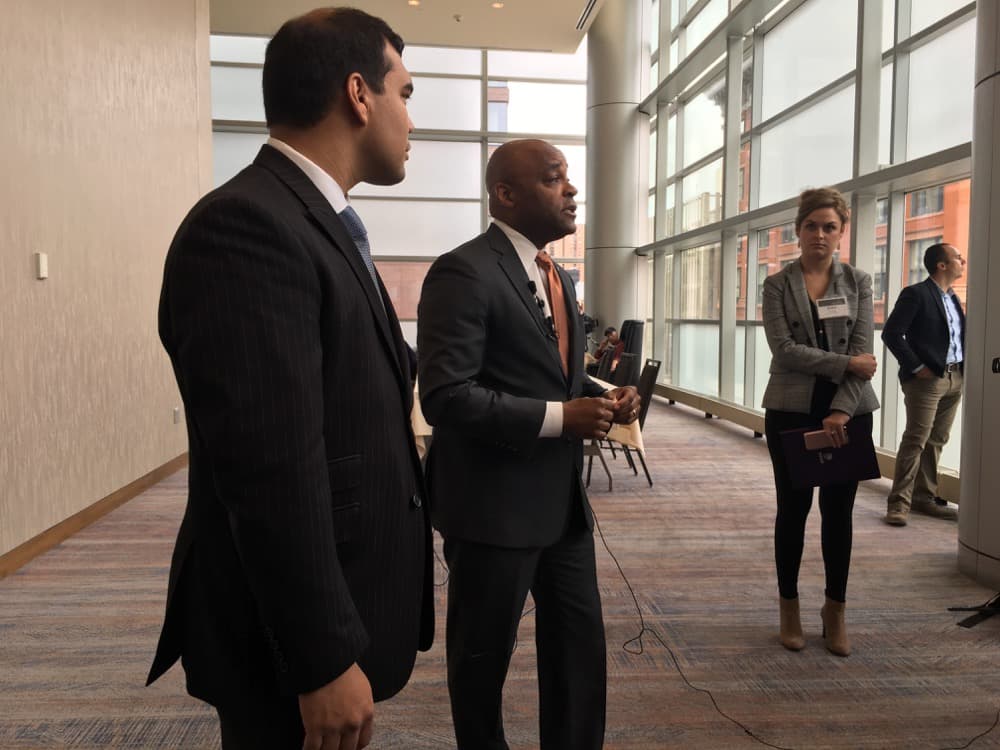Denver officials have already made commitments or plans to spend $16 million on affordable housing from the city's new fund, but the Denver City Council hasn't yet signed off on the comprehensive plan that's supposed to guide the sizable new investment.
Several council members pushed for greater oversight when they approved creation of the affordable housing fund back in 2016. Now, along with members of the Housing Advisory Committee, they're questioning whether they have enough information about and influence over the sizable new effort.
The frustrations led two council members to essentially vote against free money for housing this week because they weren't sure how the city would spend it, and several others mirrored their criticism. The discussion could signal more intense debate to come as the city finalizes its five-year plan to spend its new housing money.
The mayor's chief housing adviser, Erik Soliván, acknowledged the concerns as "real and valid" and described them as growing pains resulting from the race to address the housing crisis. Mayoral staff said that the city has relied on expert staff to ensure it's spending money wisely while longer-term plans are finalized.
"How do you balance that tension with, 'We need to get some stuff done and move things forward?'" Soliván said in an interview.
What is Denver doing?
Last year, Denver City Council approved the creation of a new affordable housing fund. It combines extra property taxes and development fees to provide an estimated $150 million over 10 years.
The big question, of course, is how to spend that kind of money.
Much of it will pay for the development of affordable housing units, but the city has to decide how and where to focus the money: How much should it spend on people in the various income brackets? How much should go toward new housing, and how much should help people pay their current rent bills?
Those answers come from various plans. The city has existing housing strategies, but it is in the process of forming a bigger plan for the new money. That was supposed to happen with the help of the Housing Advisory Committee -- a group of 23 people that includes executives of nonprofits and people who have experienced homelessness, among others.
The mayor's administration has outlined its overall goals for the next five years in a draft plan, which the HAC reviewed and sent on for public comment. It sets a specific goal -- "create or preserve 3,000 units" -- and calls for more "direct assistance," or money to help people pay bills and avoid eviction.
That plan reaches the city council next month, but high-profile players on the council and on the committee have raised critical questions about the process in recent weeks.

The criticisms:
Some of the current tension comes from the fact that the city is already spending money from the affordable housing program. For example, the city has approved contracts totaling almost $900,000 for a rent-and-utility assistance program, according to records. Those contracts didn't require the approval of the council, since neither topped $500,000.
The biggest spending is on new housing units. The city council this week approved a $2.6 million low-interest loan for an affordable housing project in Stapleton and last month approved a $3 million loan for affordable housing near 61st and Peña. Staff are working on contracts for another $6.7 million toward housing, which also will go before council for approval.
When you put it all together, the city has committed or pre-committed $16.2 million -- pretty much the entire first year of expected revenue for the affordable housing fund -- and that's all before the city council gets to weigh in on an overall strategy. That's leading some to feel like they're being left out
"I'm expressing concerns about how decisions are being made before we have clear guidance on where to prioritize those dollars," said Councilwoman Debbie Ortega at a meeting on Monday night.

Soliván acknowledged that money was already being spent.
"There was a lot going on at the same time," he said. "...We were spending down funds in 2017 while also creating a plan while also establishing a committee."
Some of those questions may continue into the year ahead. Councilwoman Robin Kniech said that the city may not be following "best practices" in setting spending plans.
“We have approved a 2018 budget, and I requested information prior to the approval of that budget that (the administration was) not able to provide me … as to how we approach the allocation of funds generally," Kniech said in an interview.
"I think the budget document is always very broad, but generally speaking, there is a process by which the community, council members are able to understand the lower-level decision making that goes into the next step."
As a result, both she and Ortega voted against putting more money into the affordable housing fund. (The city had won the money in a lawsuit.) Council members Paul Kashmann and Rafael Espinoza also expressed concerns, while Councilman Kevin Flynn said he had a "great deal of sympathy."
Council President Albus Brooks said all this could indicate more tension ahead. "The housing department, the HOPE office need to sit down with the council, or you're going to see more of these protest votes," he said in an interview, referring to the office that Soliván leads.
"We're struggling with a strategy right now," he continued. "There are people who are vehemently opposed to allocating dollars haphazardly without a comprehensive plan, and I can't say I disagree."
And some members of the Housing Advisory Committee -- including the CEO of the regional Habitat for Humanity -- said the advisory group has had little influence so far over the housing plans, as Westword reported.
The response:
Jenna Espinoza, a spokeswoman for the mayor, said that the administration has proceeded carefully in the early spending, relying on established practices and expertise while the broader plan was established.
"Aside from Erik’s work in HOPE, we have an entire housing division within our Office of Economic Development that has put forth extensive time and energy to determining how best to allocate city funds around housing while a broader and more comprehensive plan was being created," she wrote in an email.
She also said that the committee's input has already played an important role in deciding how to prioritize housing for different income levels. It has gathered input through the committee's meetings, neighborhood meetings and an online survey. And Soliván said that next year should go smoother as the committee's role is better established.
"The ordinance structured their role as providing advice and recommendations on policy, programs and initiatives," he said. "Part of the work of 2018 is, 'Let's better refine that.'"
What's next?
Next month, council members will discuss the five-year plan. The Housing Advisory Committee is also discussing the one-year plan, which sets more specific goals for 2018. The one-year plan does not require council approval. It is not yet available for public review.
Erica Meltzer contributed to this report. This post was updated with additional comment from the mayor's office and to include more information in the headline.










